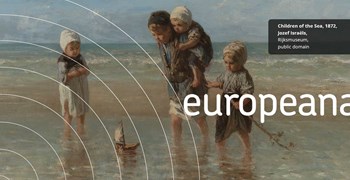Love across borders: Serbian teachers on the France Riviera
We have recently begun collecting personal stories from people all across Europe relating to migration, following on from our successful Europeana 1914-1918 project.
This new, short blog series, Love across borders, is inspired by collections discovered during this project, with stories of romance and love at the time of World War 1. Read on to see how new connections and relationships would not have been possible without people moving across the globe!
This postcard, dating from 1916, was sent from Corsica by a young Serbian woman called Ljubica who lived there during World War 1.
Serbia was at the centre the First World War. It was a Serbian student who attacked the Archduke Franz Ferdinand of Austria. As there had been earlier troubles between Austria and Serbia, this was used as an excuse to finally declare war on Serbia. Many Serbians fled to escape from the terrors of war – including Ljubica, along with her sister and brothers. The young woman managed to escape to Greece where she met the French army. They took her to the French island Corsica and later on to Nice and Beaulieu-sur-Mer. There, on the French riviera, she met the love of her life: Blagoje Ristić.
Blagoje was also Serbian, and a teacher in the small city Beaulieu-sur-Mer. They met at the local school for teachers where several Serbian students studied. Together, they stayed several years in the South of France.
When the war was over, they went back to Serbia, where a new kingdom was announced: The Kingdom of Serbs, Croats and Slovenes. They continued working as teachers in Serbia, the profession that bond them together. But they did not stay alone: They had three children, seven grandchildren, eleven great-grandchildren and five great-great-grandchildren. A story with a happy ending that could not have been told without them meeting far away from home.
Do you have a story to share about love across borders, or romance during World War 1? Share your stories with Europeana Migration and Europeana 1914-1918.
- The Love across borders series was researched and written by Larissa Borck














